featured
Judge Dismisses Lawsuit Seeking to Invalidate Nebraska Medical Cannabis Reforms
Published
10 hours agoon

A lawsuit filed by former Nebraska state Sen. John Kuehn seeking to block the state’s voter-approved medical cannabis reforms was dismissed last week in a district court, Nebraska Public Media reports.
Kuehn had argued in the suit that the medical cannabis reforms would violate state and federal law, since cannabis remains a Schedule I substance under federal law, and that his status as a Nebraska taxpayer allows him to sue over what he believes is the “illegal expenditure of taxpayer money.”
Lancaster County District Court Judge Susan Strong disagreed, however, and dismissed the case on Thursday.
“The Court does not believe that the incidental burdens of implementing a law, like employee time and printing costs, is an ‘expenditure of public funds’ sufficient to confer taxpayer standing under Nebraska law.” — Strong, via Nebraska Public Media
It was not the first lawsuit against the medical cannabis reforms brought by the former state senator that Strong dismissed — the district court judge in November rejected another lawsuit from Kuehn that had accused the medical cannabis campaign of improperly obtaining petition signatures, saying the plaintiffs fell “well short” of showing the signatures were invalid.
Nebraskans for Medical Marijuana Executive Director Crista Eggers said in a statement that the group appreciates the “thoughtful decision” to dismiss the latest lawsuit brought by Keuhn.
“This is yet another failed attempt to strip away the will of the people, and should send a clear message to the opposition that they have lost,” Eggers said in the report.
In the end, Nebraska voters overwhelmingly approved the state’s medical cannabis proposal despite political opposition from Kuehn and even current state officials like Secretary of State Bob Evnen.
State lawmakers, however, have repeatedly failed this year to advance legislation to implement the voter-approved reforms.

Author: mscannabiz.com
MScannaBIZ for all you Mississippi Cannabis News and Information.
You may like
-


New Hampshire Bill To Ease Psilocybin Penalties Advances Through House But Is Tabled In Senate
-
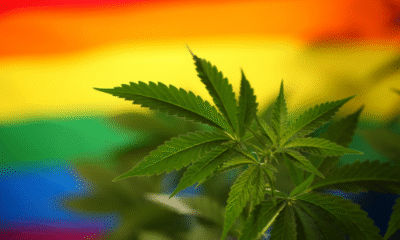

Honoring LGBTQIA+ Cannabis Trailblazers: A Pride Month Reflection
-


Anacostia Organics: Cannabis with care in the capital
-


Doctors Group Launches Campaign Empowering More Healthcare Professionals To Join Drug Decriminalization Movement
-


Star signs and cannabis strains: July 2025 horoscopes
-


Using Hemp Flour And Oil Can Make Gluten-Free Baked Goods With ‘Optimal’ Texture And ‘Significant’ Nutrition, Study Shows
featured
New Hampshire Bill To Ease Psilocybin Penalties Advances Through House But Is Tabled In Senate
Published
15 minutes agoon
June 30, 2025
The New Hampshire Senate last week voted to scrap compromise legislation that would have lowered the state’s criminal penalty for first-time psilocybin possession while also creating mandatory minimum sentences around fentanyl.
A bicameral conference committee struck an agreement on the bill, SB 14, earlier this month, returning it to both chambers for sign-off on the deal. While the House initially rejected the proposal Thursday, representatives returned from their lunch break, took up the bill again and passed it on a 185–182 reconsideration vote.
On the Senate side, however, Sen. Bill Gannon (R)—who briefly sat on the conference committee before being replaced by Sen. Daryl Abbas (R)—moved on the chamber floor that the measure be tabled, effectively killing it. The motion passed on a voice vote without any discussion.
The bill’s psilocybin provisions were championed by Rep. Kevin Verville (R), who has said that while he wasn’t a fan of the mandatory minimums for fentanyl, he saw the bill as an acceptable compromise to reduce first-time psilocybin offenses from the current felony charge down to an unspecified misdemeanor.
In email to Marijuana Moment after the Senate’s tabling vote, Verville called the move “highly regrettable,” asserting that senators “chose to protect and stand with the fentanyl dealers that are destroying NH families and communities, and killing our citizens, while simultaneously rejecting a common sense compromise in limited quantity, first offense possession of psilocybin penalty to a misdemeanor from the current felony charge.”
Nevertheless, the representative wrote: “This experience has invigorated me, not discouraged me.”
“Next year you can expect to see both psilocybin penalty and medical bills come forward,” he added.
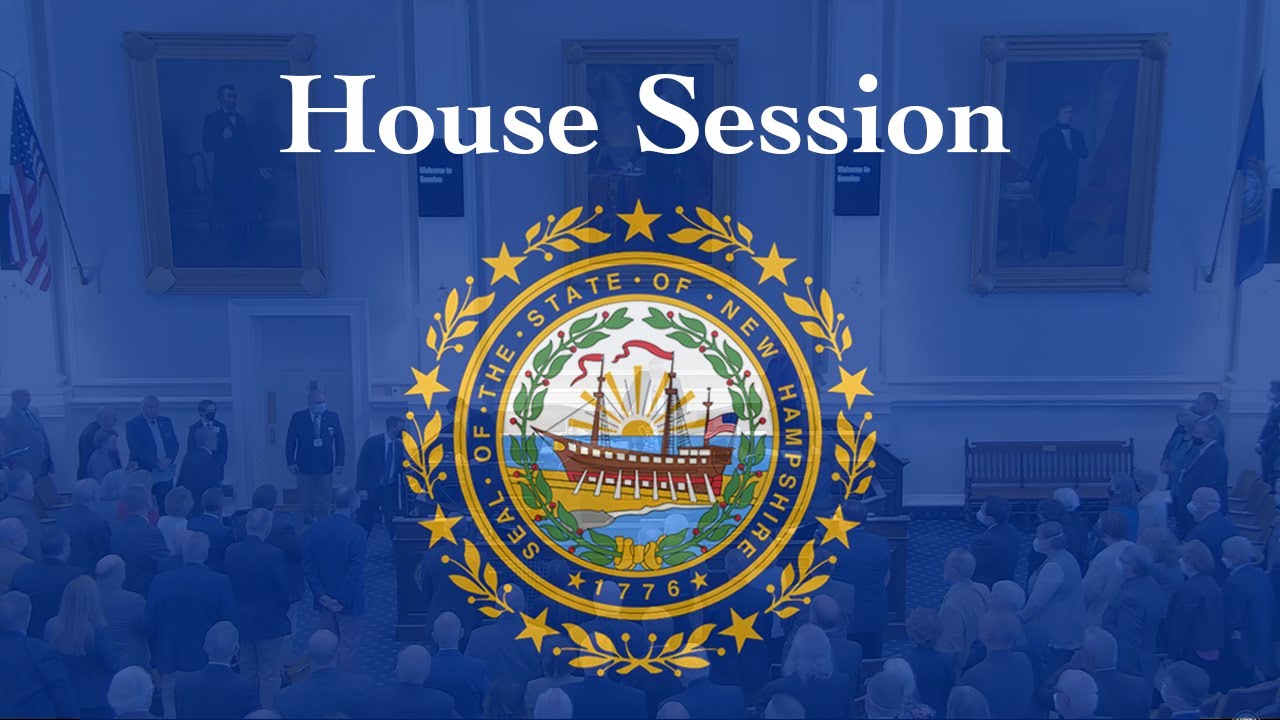
Earlier this year, the Senate scuttled a separate, more ambitious psilocybin measure from Verville, HB 528. As passed by the House, it would have removed criminal penalties for a first-time possession offense, making it a $100 civil violation.
At one point, a Senate panel attached language to that bill that would add mandatory minimums around fentanyl and fatal overdoses. At the time, Sen. Tara Reardon (D) asked colleagues if the idea was that “we’re trading” the House-favored move to reduce psilocybin penalties in exchange “for enhanced penalties” on fentanyl.
“One might say that, yes,” replied Gannon, chair of the Senate committee.
If passed, HB 528 would have make second and third psilocybin offenses Class B misdemeanors, carrying fines of up to $500 and $1,000, respectively, but with no risk of jail time. Fourth and subsequent offenses would remain classified as felonies.
Sales and distribution of the substance would still be illegal; the reform would apply only to “a person 18 years of age or older who obtains, purchases, transports, possesses, or uses psilocybin.”
As originally introduced by Verville, the legislation would have completely removed penalties around obtaining, purchasing, transporting, possessing or using psilocybin, effectively legalizing it on a noncommercial basis. However a House committee amended the bill before unanimously advancing it in March.
Verville said in his email Friday that the legislative discussion around psilocybin, though it didn’t yield tangible reform this session, “is evidence that the Overton Window relative to psychedelics has shifted.” In other words, lawmakers—and the public at large—are increasingly open to psychedelics reform as reasonable, practicable policy.
“It is clear that New Hampshire is ready to reject the arcane psychedelics policies of the 1960s, and embrace modest, but common sense reform,” he said, adding that there “is a growing, albeit unofficial, psychedelic caucus in NH and beyond. I assure you that I am far from finished on these matters.”
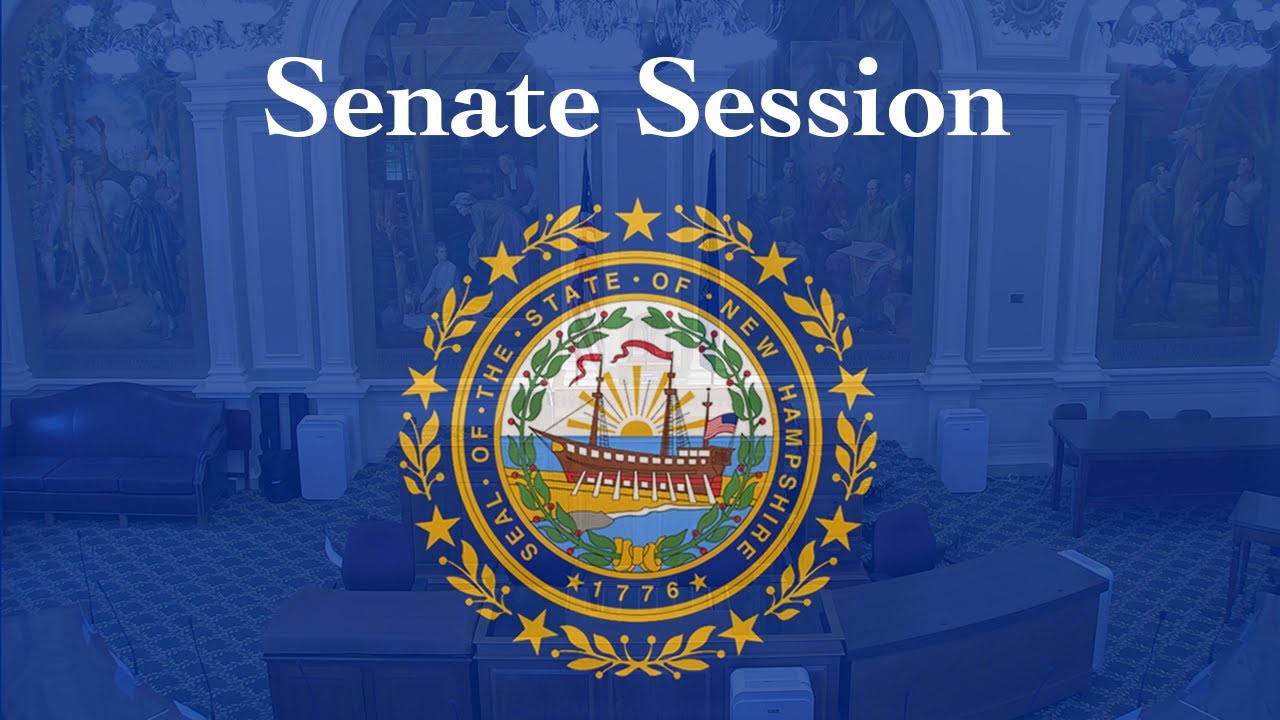
Despite SB 14‘s origin as a bill to stiffen criminal penalties around fentanyl and overdose deaths, advocates of drug prohibition cheered the bill’s demise this week.
The groups Foundation for Drug Policy Solutions (FDPS), led by anti-drug crusader Kevin Sabet who also founded Smart Approaches to Marijuana (SAM), said on social media that it “APPLAUDS NEW HAMPSHIRE FOR TABLING SENATE BILL 14.”
Sabet, FDPS’s president, said both Republicans and Democrats “stood up for public health” in tabling the bill.
“New Hampshire’s prison’s are not filled with mushroom felons,” he said in a statement; “the stepdown in severity would have addressed what amounts to a non-issue. Kudos to the legislators who understood that normalizing psilocybin through reduced penalties sends a wider message: These dangerous substances are somehow safe or therapeutic.”
As passed by the Senate earlier this session, SB 14 would have established mandatory minimum sentences for certain fentanyl offenses. But a House committee added language to reduce the penalty for psilocybin, making it a misdemeanor rather than a felony to possess up to 3/4 of an ounce of the psychedelic—though on the first offense. Subsequent offenses would remain felonies.
“Any subsequent offense after the first would still be a felony offense,” Abbas noted at a later conference committee hearing on the bill.
He noted that the first possession penalty would be an unclassified misdemeanor, meaning prosecutors would have discretion to charge the conduct as either a Class A or Class B misdemeanor, the latter of which does not include jail time.
The proposed fentanyl penalties, meanwhile, would affect manufacturing, selling, transporting or possession of the substance with the intent to sell. Those activities involving 20 or more grams would carry a 3 1/2 year mandatory minimum prison sentence, while 50 or more grams would mean at least seven years behind bars.
Prior to striking a deal on the proposal, the bicameral conference committee initially agreed to give up on the plan. But following the replacement of Gannon and others, the panel moved forward on the compromise bill.
Verville noted that the conference committee report on the bill was “signed off by three Republican senators, and five Republican House members…making this entire affair a Republican led effort.”
So far this session, the Senate as a whole has been broadly hostile to drug reform proposals. While a number of bills have cleared the House of Representatives—including a renewed effort to legalize adult-use marijuana—virtually all have gone on to die in the Senate.
As for cannabis-related legislation, the state Senate in early May narrowly voted to table a House-passed marijuana legalization bill, effectively ending this year’s effort to end cannabis prohibition in the “Live Free or Die” state.
The chamber voted 12–10 to table the measure, HB 198, from Rep. Jared Sullivan (D). It had previously passed the House of Representatives in March, but weeks later the Senate Judiciary Committee recommended the proposal be rejected.
If enacted, the bill would have legalized noncommercial possession and use of marijuana among adults 21 and older, permitting adults to have up to two ounces of marijuana flower, 10 grams of concentrate and up to 2,000 milligrams of THC in other cannabis products.
Sullivan’s proposal was a pared-down version of a legalization measure lawmakers nearly passed last year, under then-Gov. Chris Sununu (R), but it did not include that bill’s regulated commercial system—a controversial issue that ultimately derailed the earlier effort.
Verville, meanwhile, introduced a legalization bill that would have removed restrictions around marijuana but not established a state regulatory system.
Recent state polling suggests New Hampshire residents strongly favor cannabis legalization. In late April, a Granite State Poll, from the University of New Hampshire’s States of Opinion Project, found 70 percent support for the reform, including majorities of Democrats, Republicans and independents.
“Support for legalization has increased slightly since June 2024 (65%) and remains considerably higher than in the mid-2010s,” it added. “Majorities of Democrats (84%), independents (72%), and Republicans (55%) support legalizing marijuana for personal use.”
Last legislative session, New Hampshire lawmakers nearly passed a bill that would have legalized and regulated marijuana for adults—a proposal that then-Gov. Chris Sununu (R) had indicated he’d support. But infighting over how the market would be set up ultimately scuttled that measure. House Democrats narrowly voted to table it at the last minute, taking issue with the proposal’s state-controlled franchise model, which would have given the state unprecedented sway over retail stores and consumer prices.

Author: mscannabiz.com
MScannaBIZ for all you Mississippi Cannabis News and Information.
featured
Honoring LGBTQIA+ Cannabis Trailblazers: A Pride Month Reflection
Published
1 hour agoon
June 30, 2025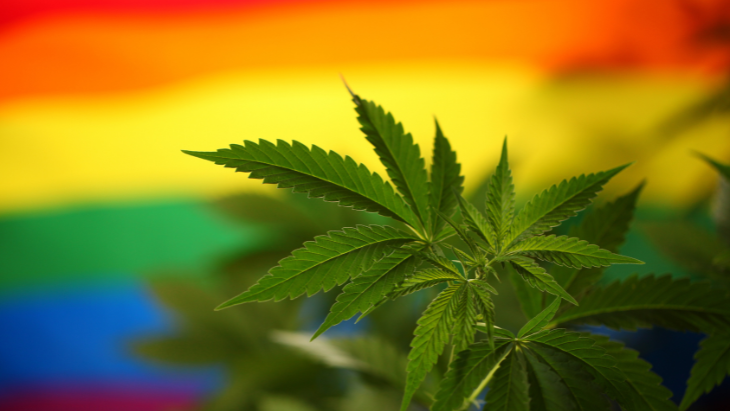
Introduction: A Coalition of Pride and Cannabis Law Reform

In the struggle for cannabis legalization, one essential thread is often overlooked: the deep historical alliance between LGBTQIA+ activists and the marijuana reform movement. From the earliest fights for compassionate access during the AIDS crisis to the halls of Congress and state legislatures, LGBTQIA+ individuals have been at the forefront of change. This coalition not only helped change drug policy, but also transformed public perceptions of cannabis from a stigmatized vice into a symbol of care, community, and healing. As we wind down Pride Month, we celebrate the activists, politicians, business owners, and community leaders whose bravery and advocacy bridged LGBTQIA+ rights and cannabis reform, creating a legacy that continues to influence public policy, public opinion, and the cannabis industry today.
Early Alliances in San Francisco: Harvey Milk and Dennis Peron
The intersection of LGBTQ+ activism and cannabis reform can be traced back to 1970s San Francisco – particularly the Castro district, a haven for queer community and counterculture. Here, an openly gay Air Force veteran named Dennis Peron settled after his service in Vietnam and became a bold advocate for the plant. Peron began selling cannabis openly in the Castro, running a makeshift “Big Top” market and later a cannabis-friendly restaurant, defying laws because he saw the plant’s benefit and believed in personal freedom.
In the same neighborhood, Harvey Milk emerged as a political trailblazer. In 1977 Milk became California’s first openly gay elected official, winning a seat on San Francisco’s Board of Supervisors. A strong supporter of drug policy reform, Milk used his platform to push boundaries that few mainstream politicians of the time would. In fact, one of the earliest pro-cannabis policies in the country came from their alliance: Proposition W (a San Francisco ballot initiative in 1978) urged the city’s District Attorney to cease arresting and prosecuting people for cannabis offenses. This nonbinding measure – championed by Milk at Peron’s urging – passed, signaling a progressive shift in local attitudes toward marijuana.
Sadly, Milk’s support for ending cannabis prohibition was cut short by his assassination in late 1978, a hate crime perpetuated by an anti-LGBTQ former city council member. Yet his loyalty to the movement was “undoubtedly a crucial early step” toward broader legalization. Milk and Peron’s collaboration in the Castro sowed the seeds of change: as one account put it, these activists and their friends “knew what too many still forget – the systems that criminalize queerness and cannabis use are one and the same.” In other words, both LGBTQ people and cannabis consumers faced stigma and criminalization, and both causes demanded justice and liberation.
Compassion in the AIDS Crisis: Pioneers of Medical Marijuana
In the 1980s and early 1990s, the AIDS epidemic devastated LGBTQ communities, and government indifference left many ailing people without hope. In this desperate time, cannabis emerged as an underground lifeline. People living with HIV/AIDS found that marijuana alleviated nausea, stimulated appetite, and relieved pain when no legal medicines could. But using cannabis was still a crime, forcing patients to risk arrest for relief. LGBTQ+ activists saw this injustice and fought back – becoming the nation’s earliest and most vocal advocates for medical cannabis access.
Dennis Peron again stepped up to the plate. After watching his partner Jonathan West suffer and ultimately succumb to AIDS in 1990, Peron was determined to ease others’ suffering. He co-founded the San Francisco Cannabis Buyers Club – the first public medical marijuana dispensary in the U.S. – to distribute cannabis to AIDS patients and others with serious illnesses. He also led a 1991 San Francisco voter initiative known as Proposition P, which passed with an overwhelming 79% approval and urged California’s state government to permit the medical use of marijuana. This marked the first time since the 1930s that doctors could recommend cannabis to patients without fear of losing their license – at least in San Francisco. Proposition P was a local resolution, but it built momentum for statewide reform.
Meanwhile, an unlikely ally became a folk hero of compassionate cannabis care: Mary Jane “Brownie Mary” Rathbun. A grandmotherly former waitress, “Brownie Mary” earned her nickname by baking cannabis brownies and secretly delivering them to AIDS patients in San Francisco’s hospitals during the mid-1980s. Rathbun, though not LGBTQ herself, was volunteering on AIDS wards and saw first-hand how infused edibles mitigated pain. Despite being arrested multiple times for her edible giveaways, she remained defiant and kept baking for those in need. By publicly fighting her charges and speaking to the media, Brownie Mary helped humanize the medical marijuana movement – shattering the “stoner” stereotype with the image of a kindly senior bringing relief to the sick.
“Here was a sweet old lady – not a stereotypical ‘burnout’ – risking her freedom to bring comfort to the dying,” one account noted, and this compassionate image shifted hearts and minds about cannabis.
Together, Dennis Peron and Brownie Mary became the dynamic duo of medical cannabis activism. They organized support groups, lobbied officials, and repeatedly put themselves on the line to demand compassion. As AIDS raged, “marijuana was just part of the treatment,” as activist Paul Scott recalls – it alleviated the horrific symptoms of both the illness and the early AIDS medications, which were “almost as deadly as the virus” in their side effects. Scott, a gay HIV/cannabis activist who lived in San Francisco in 1994, notes that the city’s progressiveness allowed these compassionate cannabis efforts to take root while much of the country looked away. A student of Peron’s, Scott quickly became a leader of the LGBTQ movement in his own right, founding the city of Los Angeles’s Black Gay Pride organization and creating the first medical cannabis facility in Inglewood to help terminally ill patients get safe, legal access to cannabis. He remains at the forefront of equity and legalization activism in California today.
The culmination of this grassroots activism came in 1996, when California voters passed Proposition 215, making it the first state to legalize marijuana for medical use. Peron co-authored Prop 215 – often called the Compassionate Use Act – and has since been recognized as “the father of medical marijuana” for his role. Prop 215’s victory was directly fueled by the compassion and courage of the LGBTQ+ community and their allies: as a recent Pride campaign aptly summarized, Prop 215 “would not have passed without the efforts of HIV/AIDS activists, many of them queer, who demanded compassionate access to cannabis as medicine.” These activists reframed the debate entirely: cannabis was no longer just about “getting high,” it was about quality of life, dignity, and care for people society was in danger of forgetting. By caring for “their own” when few others would, queer cannabis advocates in the 1980s–90s blazed a trail that ultimately opened the doors to medical marijuana laws across the country . States that later adopted medical programs in the late 1990s and 2000s followed the template proven in California – a template written in large part by LGBTQIA+ activists in the Castro district of San Francisco.
It’s important to recognize how these early efforts changed the national conversation. “We had all these other diseases that marijuana helps with,” Paul Scott observed. “But it wasn’t until the visual effect of young white men dying in hospitals with AIDS that it shook the conscience of America and began to change the law.” In other words, the compassion shown to AIDS patients – many of them gay men – put a human face on the cannabis issue that the public simply could not ignore. What had been a fringe cause was now a moral cause. The groundwork laid by Peron, Brownie Mary and their cohort not only resulted in Prop 215’s passage, but also set an example: soon after California’s landmark law, other states began enacting medical cannabis programs of their own . The first domino had fallen, largely thanks to a coalition of queer activists and patients who stood up for the right to heal.
Changing Laws Through Openly LGBTQ+ Leadership
As cannabis reform expanded from medical to broader legalization in the 21st century, openly LGBTQ+ leaders have continued to play pivotal roles as legislators, policymakers, and government officials championing change. These individuals carried the torch from street activism into the political mainstream, often drawing explicit parallels between the struggles for LGBTQ equality and for sane marijuana laws.
One early pioneer in elected office was Congressman Barney Frank of Massachusetts. Frank came out as gay in the 1980s – the first member of Congress to do so voluntarily – and was for decades one of Capitol Hill’s boldest voices for drug reform. Remarkably, Frank had advocated for marijuana decriminalization since the early 1970s (first as a state legislator) and in 1978 he introduced one of Congress’s first bills to remove federal penalties for personal cannabis use. Though such bills languished at the time, Frank persisted. He often noted the similarities between the fight for same-sex marriage and marijuana legalization, arguing that both were battles against ignorance and prejudice. Just as gay marriage opponents falsely claimed societal harm, cannabis prohibitionists spread fear – and in both cases, Frank said, “reality beat the prejudice” once people saw with their own eyes that the feared harms never materialized.
As he predicted, state-by-state breakthroughs in policy (medical marijuana laws in the 1990s, early gay marriage laws in the 2000s) proved the sky didn’t fall, accelerating public acceptance. Barney Frank’s dual legacy – championing LGBTQ rights and drug policy reform – exemplifies how intertwined the movements have been. By the time he retired in 2013, Frank had helped pave the way for major shifts, including the end of federal bans on medical cannabis interference (through budget amendments) and greater bipartisan support for legalization.
At the state level, openly LGBTQ lawmakers have authored and sponsored some of the most significant cannabis legislation in recent years. For example, in Illinois, State Rep. Kelly Cassidy – an out lesbian lawmaker – was the chief sponsor of the 2019 bill that made Illinois the first state to legalize adult-use cannabis via the legislature (rather than by voter initiative). Cassidy’s leadership was instrumental in crafting Illinois’ law with strong social equity provisions, a model that other states have looked to. In her own words, this achievement is one of her proudest, not only expanding personal freedom but also addressing past injustices by expunging thousands of cannabis convictions. Cassidy is part of a wave of LGBTQ public servants who see cannabis reform as a matter of justice, health, and community wellness – values long core to queer activism.
Another prominent figure is Jared Polis, who made history in 2018 as the first openly gay man elected governor of a U.S. state – and fittingly, that state was Colorado, a trailblazer in cannabis legalization. Prior to becoming governor, Polis had been a vocal advocate for cannabis reform in Congress, even co-founding the Congressional Cannabis Caucus during his decade as a federal representative. As governor of Colorado, Polis has fully embraced the role of what one journalist dubbed “America’s first pot governor,” actively courting the cannabis industry and pushing to normalize and advance the legal market. He took office five years after Colorado’s first recreational shops opened, and quickly set about signing further pro-cannabis measures that his predecessor had vetoed.
Polis’s outspoken support for cannabis – he even hired a dedicated “cannabis outreach director” for his gubernatorial campaign – signaled how far the movement has come: what was once political suicide is now a platform for electoral success. His success also highlights the synergy of LGBTQ progress and cannabis progress; Colorado, a state that led on marijuana, was also willing to elect an openly gay governor who proudly supports that cause.
In addition to these high-profile names, there are many other LGBTQ figures in politics and government who have contributed to cannabis reform. In Oregon, Governor Kate Brown, who is openly bisexual, oversaw the implementation of adult-use legalization after voters approved it in 2014 and has advocated for federal reform. Openly gay and lesbian state legislators from Massachusetts to New York to California have been among the co-sponsors of bills to legalize or decriminalize cannabis and to expunge past records. Years before it was popular, leaders like Providence Mayor David Cicilline (later a Congressman) and San Francisco Senator Mark Leno – both openly gay – endorsed medical marijuana access and sensible drug policies as well. Each of these public servants helped push the needle of policy forward, proving that being pro-LGBTQ and pro-cannabis often stem from the same commitment to civil liberties and public health. Indeed, Khadijah Tribble, a Black queer advocate and cannabis policy expert, notes that “any prohibition on civil liberties tends to impact marginalized communities the most” – so it is no surprise that LGBTQ activists understand the urgency of ending cannabis criminalization. Their lived experience with unjust laws fuels their passion to change unjust drug laws.
Changing Minds and Public Opinion
The alliance of LGBTQIA+ activists and cannabis advocates did more than change laws – it changed minds. By the late 1990s, thanks to stories and images emerging from the AIDS crisis, the American public began to see marijuana in a new light: not as a dangerous narcotic, but as a lifeline for the suffering. This profound shift in public opinion was no accident; it was the result of intentional narrative change driven by LGBTQ+ leaders and their allies.
The example of Brownie Mary, mentioned earlier, is instructive. When she was arrested in 1981 and again in the early 90s for distributing medicated brownies, her courtroom testimony and media interviews unapologetically framed her “crime” as an act of compassion. She spoke about terminally ill AIDS patients finding relief in cannabis, shaming prosecutors for wasting resources on a grandma trying to ease pain. Coverage of her cases – complete with her nickname that sounded more sweet than criminal – generated enormous sympathy. Similarly, Dennis Peron’s public campaigns and the very existence of a cannabis buyers’ club for gravely ill patients made it harder for opponents to demonize marijuana users.
As one sociologist (and LGBTQ activist) Wendy Chapkis documented in her research on medical cannabis, patients’ personal stories of regaining appetite or alleviating misery undermined decades of Drug War propaganda. The “evil weed” narrative simply couldn’t hold up against the image of AIDS patients gaining weight thanks to marijuana, or a grandmotherly volunteer risking jail for the sick. These real-life accounts, often amplified by LGBTQ advocates who understood the power of coming out with one’s truth, played a key role in softening public skepticism.
There is a parallel here to the strategy that helped advance LGBTQ rights: coming out. Just as LGBTQ people recognized that living openly was a powerful tool to win public acceptance (“they realized they knew someone gay, and attitudes changed”), cannabis activists adopted a similar approach – encouraging patients and even healthy cannabis consumers to speak openly about their use. This strategy was explicitly likened to coming out of the closet.
Barney Frank often remarked that marijuana legalization would follow the footsteps of gay marriage because once ordinary people saw that their coworkers, neighbors, even family members could use cannabis and remain responsible, productive members of society, the old prejudices would crumble . He noted that both movements had to confront unfounded fears: dire warnings that “society would collapse” if gay couples wed or if pot was allowed. Those warnings proved false in both cases once reality was tested in a few places – Massachusetts with marriage equality, California with medical marijuana – paving the way for broader acceptance. In short, truth defeated stigma. LGBTQIA+ activists uniquely understood how visibility and honest storytelling could change public opinion, and they brought those tactics to cannabis advocacy with remarkable success.
By the 2010s, polls showed that a majority of Americans supported legalizing cannabis – a sea change from the 1980s. The compassionate framing introduced by the AIDS-era activists unquestionably greased the wheels of this change. Medical marijuana, once seen as radical, became mainstream and respected, largely thanks to the groundwork laid by queer advocates in the 80s/90s. And as legalization progressed to include adult-use (recreational) cannabis, many of the remaining arguments against it were defanged by years of positive examples from the medical side. The public had seen cancer and HIV patients helped by cannabis; they had heard respected figures (like doctors, nurses, even clergy) speak in favor of compassion. Much of this can be credited to that initial LGBTQ+ activist push that made compassion and dignity the centerpiece of the cannabis conversation. Today, when we celebrate how far public opinion has come – with cannabis openly sold in dozens of states – we should remember that it was not pop culture alone that changed minds, but also activists in Pride parades and AIDS hospices who spoke truth to power.
However, the LGBTQ+ community’s influence extended into cultural spheres that did help normalize cannabis. Cannabis became entwined with queer culture in positive ways: from the underground LGBTQ club scene where it was part of creative and social expression, to Pride festivals where cannabis advocates eventually marched alongside LGBTQ advocates, and the popularization of queer expression through the phenomenon of RuPaul’s Drag Race. By the time corporate America woke up to Pride, even cannabis brands were proudly joining the celebrations. This cultural crossover further eroded stigma, especially among younger generations who saw both LGBTQ pride and cannabis use as expressions of individuality and freedom, not deviance.
Laganja Estranja, one of the world’s most influential drag performers and a cannabis activist who came to mainstream recognition through Drag Race, has incorporated the plant into everything from her music videos to her merchandise. She has noted that cannabis helps her manage chronic pain, and stated, “Cannabis helped give me the courage to be myself… It brings me closer to myself. The feeling of acceptance is the most powerful thing I get from cannabis.” That sentiment – using cannabis as a tool for wellness and self-discovery – resonates strongly with many in the queer community, especially those exploring identity or coping with trauma. Laganja has also been vocal about the plant’s role in her gender identity transition, which she announced publicly in 2021. In an interview with Fat Nugs Magazine, she explained using cannabis first to numb herself to bullying and confusion in her earliest years, but now “[cannabis] has helped me to accept my journey, deal with my PTSD, and to deal with my fear of being accepted as someone who does not live on the typical gender spectrum.”
Her story is another example of how the LGBTQ movement and cannabis movement share a common story of personal empowerment and the pursuit of authenticity.
LGBTQIA+ Leadership in the Cannabis Industry
As legal cannabis moves from advocacy into industry, the influence of LGBTQIA+ pioneers continues to be felt. The modern cannabis industry, now a multi-billion-dollar sector, is notably inclusive of LGBTQ people in its workforce – a likely legacy of the movement’s queer roots. A recent industry survey found that 14% of cannabis industry employees identify as LGBTQIA+, nearly double the percentage in the overall U.S. workforce. This isn’t entirely surprising: many early cannabis businesses sprang from the medical marijuana era in places like San Francisco, Los Angeles, and Seattle, where LGBTQ entrepreneurs and allies had been involved from the start.
Some of the first dispensaries and cannabis service organizations were founded or co-founded by LGBTQ individuals. For instance, in West Hollywood (a city with a large gay population), cannabis advocacy and business have long gone hand-in-hand with the city’s progressive politics. In the 1990s, organizations like the Los Angeles Cannabis Resource Center worked closely with AIDS organizations; its founder, Scott Imler, was gay and collaborated with Peron on Prop 215. In the years since, a number of queer-led cannabis ventures have emerged.
Proud Mary, founded by Brie Brewer, is a New York-based company that promotes education and networking for queer individuals in the cannabis space, partnering with local drag performers and LGBTQ activists to highlight affirming spaces and brands and create fundraisers for equity. Stone Road, founded by Lex Corwin, is known for creating “the most beautiful joints in the world” and for marketing campaigns that center queer and diverse models. Drew Martin, created by Drew Gosselin, directly cites Dennis Peron’s activism as inspiration for their popular botanicals. Andres Rigal and Taylor Bazley founded Green Qween, a Los Angeles dispensary that has become famous for its commitment to fundraising for BIPOC and LGBTQ+ causes. Doble Reina, founded by sisters Javi and Flori, is a Latina and LGBTQ-owned accessories brand that brings Chilean artistry to American smokeware.
Cann, the renowned beverage brand by Luke Anderson and Jake Bullock, is known for breaking cultural barriers. In 2022, the brand partnered with Weedmaps on a mainstream campaign, “Taste So Good,” which showcased an all-star ensemble in a music video that doubled as a Cann ad. The video featured several RuPaul’s Drag Race alums including winner Willow Pill, vocalists Hayley Kiyoko, Ke$ha, MNEK, and VINCINT, and cameos from Sarah Michelle Gellar and Oscar winner Patricia Arquette. Eventually, the campaign took home five Clio Awards and recognition from outlets such as AdWeek, Thrillist, and Broadway World.
Brands like Peak Extracts (co-founded by a queer woman in Oregon) explicitly celebrate LGBTQ culture in their marketing and hiring.
The industry has also shown its appreciation for the LGBTQ community through campaigns and products. Major companies have released Pride-themed cannabis products – for example, the edibles brand Kiva Confections launched limited-edition rainbow “Pride Gummies” and donated a portion of proceeds to LGBTQ nonprofits. Such efforts not only honor the community but also acknowledge a historical debt: the legal cannabis trade quite literally exists because of those early activists. As one advocacy campaign this year, Loud & Proud, reminded consumers and companies: “queer liberation and cannabis justice have long burned from the same flame”. This campaign, featuring drag artists and partnered with the Last Prisoner Project, celebrates the “queer legacy of cannabis activism” while demanding that today’s industry work toward a future where no one is incarcerated for a plant and no one is punished for being proud. It’s a powerful call to action for businesses to remember their roots and to continue the push for social justice, whether that means advocating for expungements of cannabis convictions or standing against discriminatory laws targeting LGBTQ people.
Yet, challenges remain in the industry. While LGBTQ representation among rank-and-file cannabis workers is high, leadership and ownership are not as diverse. Advocates point out that as the industry matures, it must not shut out the very communities that helped birth it. Organizations and social equity initiatives are working to support queer and trans entrepreneurs, ensuring they have access to capital and opportunity in this space. The spirit of inclusivity, mutual support, and “community first” that characterized the AIDS-era buyers clubs is something many modern cannabis businesses strive to emulate – from dispensaries that host Pride fundraisers to cannabis brands that focus on wellness for queer youth and elders. In short, the activist ethos is not lost; it’s evolving into an industry ethos of diversity and care.
A Continuing Intersection and a Shared Fight
The story of LGBTQIA+ contributions to cannabis legalization is not just history – it’s an ongoing narrative. Even today, both movements find common cause in fighting stigma and unjust laws. Khadijah Tribble has noted that marijuana legalization “remains an LGBT issue today” for several reasons. In many conservative regions, queer people (especially those who are also people of color or transgender) are disproportionately targeted by drug enforcement, just as they are by other discriminatory policing. And in parts of the country where HIV/AIDS still exacts a heavy toll (such as the U.S. South), access to medical cannabis for symptom relief is often lagging due to restrictive laws. Thus, the fight for equitable cannabis access is intertwined with the fight for LGBTQ equality and healthcare access. Both seek a world where people are not criminalized for who they are or for the medicine they choose.
As we reflect on this proud legacy during Pride Month, it’s clear that the LGBTQIA+ community revolutionized cannabis policy and culture in ways that still reverberate. They taught us about courage in the face of life-and-death stakes, about compassion triumphing over fear, and about the power of coming together as a community to demand change. Figures like Harvey Milk and Dennis Peron, Brownie Mary Rathbun, Barney Frank, Paul Scott, Kelly Cassidy, and countless unnamed caregivers and patients – these are the heroes who turned the tide. They turned personal tragedy into societal transformation, linking arms as queer and cannabis activists to insist that humanity and justice guide our laws.
Their impact is evident every time a cancer patient lawfully uses medical marijuana in Middle America – an impossibility to imagine before 1996. It’s evident when a state legislator speaks proudly about both her wife and the cannabis bill she’s sponsoring, without fear or shame. It’s evident in the vibrant booths of queer-owned cannabis businesses at Pride festivals, celebrating openly what was once hidden in the shadows. Public policy has been reformed, public opinion has been enlightened, and a new industry is being built on principles of inclusion – all thanks to this remarkable coalition of LGBTQIA+ activists and cannabis advocates.
In honor of Pride Month, we at NORML salute these trailblazers. This celebratory reflection is also a call to action: to remember that the struggle is not over. We must continue working so that the cannabis legalization movement remains inclusive and justice-focused – just as it started – and so that the LGBTQIA+ community continues to have a strong voice in shaping cannabis policy. Together, in solidarity, we will carry on the legacy of compassion and courage, ensuring that both Pride and cannabis reform keep moving forward, hand in hand, towards a freer and more equitable society for all.
Sources: The historical and contemporary insights above are drawn from a rich record of reporting and analysis. Notable references include first-hand accounts in LGBTQ publications like The Washington Blade, analyses of the AIDS crisis and cannabis activism, biographies of key figures, and modern industry surveys and campaigns highlighting LGBTQ contributions, among others. These sources document the undeniable role queer advocates played in legalizing medical marijuana and advancing cannabis reform over the decades. The legacy of this intersectional struggle is well summarized by activists themselves: “The LGBTQ community…were the first main activists pushing for medicinal marijuana laws,” as Khadijah Tribble affirmed, and Prop 215 “would not have passed” without queer HIV/AIDS activists leading the charge. Today’s cannabis freedoms truly stand on the shoulders of these LGBTQIA+ pioneers. We honor their stories and continue their fight.
Related

Author: mscannabiz.com
MScannaBIZ for all you Mississippi Cannabis News and Information.
featured
Doctors Group Launches Campaign Empowering More Healthcare Professionals To Join Drug Decriminalization Movement
Published
2 hours agoon
June 30, 2025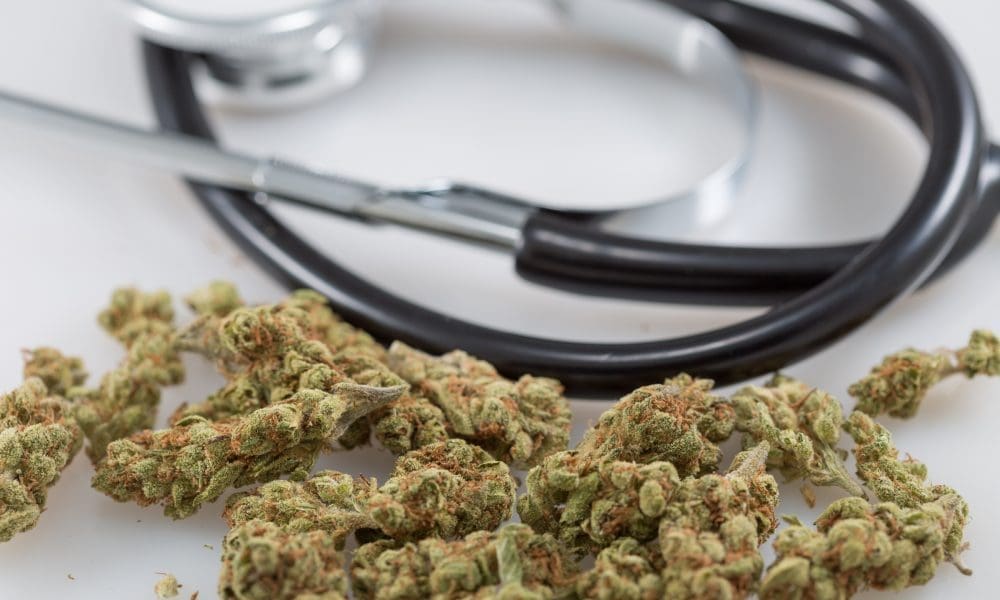
A group of doctors who support drug policy reform is launching a new campaign aimed at equipping physicians and healthcare professionals with skills to play a greater role in advocating for the decriminalization of drugs. Organizers say there’s a need for more voices from the medical community to take part in ongoing discussions around cannabis, psychedelics and harm reduction issues.
Doctors for Drug Policy Reform (D4DPR) says it’s spent the past year developing its new advocacy toolkit intended for healthcare professionals and scientists on “Transitioning from a Criminal Justice Model of Drug Use to a Health-focused Approach.” It includes guides to help would-be activists craft opinion pieces and engage with lawmakers and the media in order to “educate on the failures and lasting harms of the War on Drugs” and “confidently reframe drug use through a compassionate public health lens.”
“We’re assembling a core group of ‘on-call’ health professionals who are willing to lend their voice when timely advocacy opportunities arise,” says a recent D4DPR email about the effort, funded through a grant from the Drug Policy Alliance (DPA). “Now more than ever, we need healthcare professionals like you to speak up—especially when critical legislation is being debated.”
Bryon Adinoff, D4DPR’s president, told Marijuana Moment that it’s “imperative” that healthcare professionals take part.
“We want to health them speak up and learn how to do it in the right way,” he said.
Among the topics D4DPR is prioritizing with the new initiative are cannabis regulation, the decriminalization and therapeutic use of psychedelics as well as overdose prevention centers. By and large, Adinoff said, other medical professionals and organizations have “not been sufficiently active in this area.”
“Prohibition in general has really hurt individuals and communities around the world,” he said. “We’re obligated to speak up.”
In addition to guidance for how to engage in advocacy, the new D4DPR toolkit includes factsheets, a book of best advocacy practices and ways to connect with other advocates.
“Your insight and credibility can help shift public opinion, influence public policy, and reduce the stigma that harms our patients,” the group’s email to supporters says. “Together, we can create drug policies rooted in science, dignity, and care.”
Adinoff pointed out that health professionals are in a powerful position to influence public opinion, noting that “rightly or wrongly, survey after survey, we show up as the most trusted voice.”
“People believe us,” he said. “Even in this time of anti-science, I still think we have a better likelihood of being trusted to do the right thing—and say the right thing—compared to most other professions.”
D4DPR is asking would-be advocates to send an email to learn more about the new program.
The new advocacy push adds to other efforts the group has taken up in order to influence public policy. In March, for example, D4DPR published a position paper calling for states to decriminalize personal use and possession of an array of psychedelic substances.
“Criminalizing the personal use and possession of psychedelics is a costly misuse of resources,” it contends. “A cohesive state-level decriminalization framework would better align with evidence-based drug policies, ensuring a more just and effective response to substance use.”
The decriminalization white paper came on the heels of another D4DPR position paper about treatment strategies for opioid use disorder. That paper, by Hunter Platzman, argues that rather than rely agonist treatments such as methadone and buprenorphine, policymakers should embrace additional safer supply interventions, such as prescribing pharmaceutical-grade heroin.
While agonist treatments are legal, well established treatments, that paper argues, they’re used by fewer than 35 percent of people with opioid use disorder. Others are either unable to access the therapies or refuse them altogether. Prescription heroin, Platzman argues in the report, “demonstrates superior efficacy compared to traditional medications like methadone” and is far less lethal than highly toxic synthetic opioids, such as fentanyl.
In April of last year, meanwhile, D4DPR argued in a separate position paper that hemp-derived cannabinoids should be regulated more like marijuana.
“Our understanding of these compounds is limited,” the paper said of compounds like delta-8 THC. “Many have never been observed in nature and their toxicology is unknown.”
“Our stance at D4DPR,” it continued, “is that all intoxicating cannabinoids should be subject to a regulatory framework to ensure public safety.”
The cannabinoids paper was an attempt to bridge what the group described as a policy gap between between hemp—legalized federally through the 2018 Farm Bill—and marijuana, which remains federally illegal.
“The reason we got into this problem is by making this artificial distinction between two plants, hemp and cannabis, that are identical plants. One has low amounts of THC and one doesn’t,” Adinoff told Marijuana Moment at the time. “That’s what got us into this mess.”
D4DPR was long known as Doctors for Cannabis Regulation (DFCR) but rebranded in 2023 to reflect a growing focus on “a wider range of drug policy issues beyond cannabis,” including psychedelics and broader harm reduction matters, leaders said at the time.

Author: mscannabiz.com
MScannaBIZ for all you Mississippi Cannabis News and Information.
New Hampshire Bill To Ease Psilocybin Penalties Advances Through House But Is Tabled In Senate

Honoring LGBTQIA+ Cannabis Trailblazers: A Pride Month Reflection

Anacostia Organics: Cannabis with care in the capital

Doctors Group Launches Campaign Empowering More Healthcare Professionals To Join Drug Decriminalization Movement

Star signs and cannabis strains: July 2025 horoscopes

Using Hemp Flour And Oil Can Make Gluten-Free Baked Goods With ‘Optimal’ Texture And ‘Significant’ Nutrition, Study Shows

10 Alabama CBD Stores, Vape Shops Raided; 4 Hemp Businesses Sue State

Four Arrested for CBD Distillate Theft Valued at $3.6M

ALEA raids 9 stores across Alabama for allegedly violating state marijuana laws

What’s Changed Since Connecticut Legalized Adult-Use Marijuana 4 Years Ago?

Police: Man caught with 250 pounds of marijuana

California Cannabis Excise Tax Hike Takes Effect as Consumers Face Mounting Cost-of-Living Crisis

First legal cannabis dispensary to open in Genesee County

Judge Dismisses Lawsuit Seeking to Invalidate Nebraska Medical Cannabis Reforms

Mike Tyson leads athletes in push for marijuana reform: 'Cannabis is not a drug'

Rand Paul Says GOP Congressman’s Hemp Ban Bill Would ‘Completely Destroy’ The Industry

Cannabis legalization could help GOP win young voters, former congressman says (Newsletter: June 30, 2025)

Alabama Expected to Issue Medical Cannabis Dispensary Licenses Soon

Mississippi AG Says Intoxicating Hemp Products Are ‘Prohibited’ Under State Law

RAW Rolling Papers Founder Buys High Times

Jones Soda Co. Sells Mary Jones THC Beverage Brand

Chicago Police Can’t Search Vehicles Based on Smell of Raw Cannabis Under New Rules

Tilray Brands Subsidiary is First Company in Italy Approved to Distribute Medical Cannabis Flower

San Diego heart surgeon weighs in on marijuana and heart disease risk

Alert: Department of Cannabis Control updates data dashboards with full data for 2023

Connecticut Appoints The US’s First Cannabis Ombudsperson – Yes there is a pun in there and I’m Sure Erin Kirk Is Going To Hear It More Than Once!

5 best CBD creams of 2024 by Leafly

Free delta-9 gummies from Bay Smokes

EU initiative begins bid to open access to psychedelic therapies
New Study Analyzes the Effects of THCV, CBD on Weight Loss

Mississippi city official pleads guilty to selling fake CBD products

Curaleaf Start Process Of Getting Their Claws Into The UK’s National Health System – With Former MP (Resigned Today 30/5/24) As The Front Man

May 2024 Leafly HighLight: Pink Runtz strain

5 best autoflower seed banks of 2024 by Leafly

Horn Lake denies cannabis dispensary request to allow sale of drug paraphernalia and Sunday sales | News

Discover New York’s dankest cannabis brands [September 2024]

Press Release: CANNRA Calls for Farm Bill to Clarify Existing State Authority to Regulate Hemp Products

Nevada CCB to Accept Applications for Cannabis Establishments in White Pine County – “Only one cultivation and one production license will be awarded in White Pine County”

Local medical cannabis dispensary reacts to MSDH pulling Rapid Analytics License – WLBT

6 best CBD gummies of 2024 by Leafly

5 best THC drinks of 2024 by Leafly

The Daily Hit: October 2, 2024

5 best delta-9 THC gummies of 2024 by Leafly

Weekly Update: Monday, May 13, 2024 including, New Guide for Renewals & May Board meeting application deadline

People In This State Googled ‘Medical Marijuana’ The Most, Study Shows

Thailand: Pro-cannabis advocates rally ahead of the government’s plan to recriminalize the plant

PRESS RELEASE : Justice Department Submits Proposed Regulation to Reschedule Marijuana

Press Release: May 9, STIIIZY and Healing Urban Barrios hosted an Expungement Clinic & Second Chance Resource Fair
Trending
-

 California Cannabis Updates1 year ago
California Cannabis Updates1 year agoAlert: Department of Cannabis Control updates data dashboards with full data for 2023
-

 Breaking News1 year ago
Breaking News1 year agoConnecticut Appoints The US’s First Cannabis Ombudsperson – Yes there is a pun in there and I’m Sure Erin Kirk Is Going To Hear It More Than Once!
-

 best list11 months ago
best list11 months ago5 best CBD creams of 2024 by Leafly
-

 Bay Smokes1 year ago
Bay Smokes1 year agoFree delta-9 gummies from Bay Smokes
-

 cbd1 year ago
cbd1 year agoNew Study Analyzes the Effects of THCV, CBD on Weight Loss
-

 Business9 months ago
Business9 months agoEU initiative begins bid to open access to psychedelic therapies
-

 Mississippi Cannabis News1 year ago
Mississippi Cannabis News1 year agoMississippi city official pleads guilty to selling fake CBD products
-

 Breaking News1 year ago
Breaking News1 year agoCuraleaf Start Process Of Getting Their Claws Into The UK’s National Health System – With Former MP (Resigned Today 30/5/24) As The Front Man

